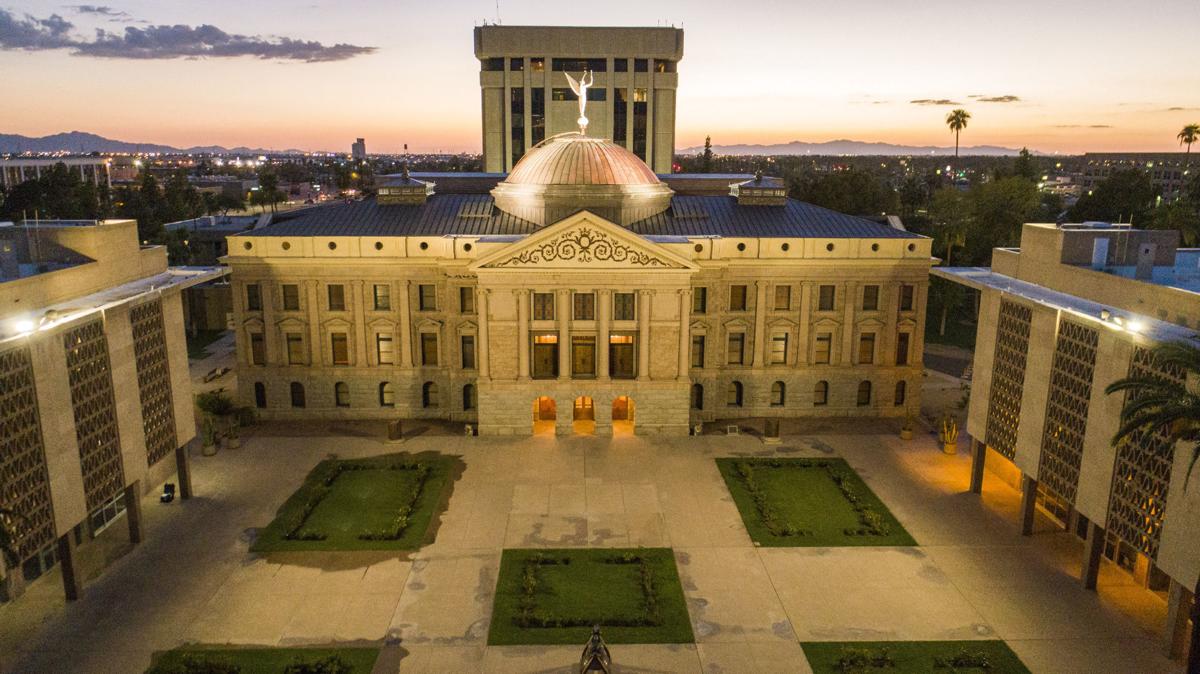PHOENIX — Saying it will stimulate job growth, Republican lawmakers voted Tuesday to cut by nearly half the taxes owed by corporations doing business in Arizona.
Under current law, the corporate income tax rate is 4.9%. HB 2003 would drop that in four steps to just 2.5% in 2026.
Legislative budget staffers say the change, when fully implemented, will reduce state revenues by nearly $670 million a year.
House Minority Leader Andrés Cano, D-Tucson, called the change, approved on a 31-29 party-line vote, “corporate welfare.”
“Nobody is asking for incentives that would benefit folks other than regular Arizonans,” he said, pointing out that no corporate lobbyists turned out to testify in favor of the measure when it was heard in the Ways and Means Committee just two days into the new session.
But Rep. David Livingston, R-Peoria, who crafted the measure, said that it will promote economic development.
“If we look at our region, there’s states right around Arizona that have a lower tax than ours,’” he said. Livingston said the Tax Foundation ranks Arizona No. 23 in “overall tax competitiveness.”
But even the Tax Foundation shows that California and New Mexico have higher rates, with Utah barely below Arizona at 4.85% and Colorado at 4.4%.
Texas and Nevada have no corporate income tax but instead a gross proceeds tax. And of the states with a corporate income tax, the organization shows Arizona currently having the 37th lowest rate.
Livingston, however, said the tax cut is necessary.
“What I’m trying to do is make Arizona even a better place for businesses from California to move to Arizona and hire our citizens and produce jobs,” he said. “This bill will help us do that.”
Cano said that logic is flawed.
“You can point a narrative in the direction of supporting jobs, supporting business,” he said.
“But if we want to invest in all of those things that are supercritical for our economy, this bill will actually hamper our ability to do that,” Cano said. “We want, as House Democrats, to invest in Arizonans, not corporations.”
Economic development aside, Livingston said lowering the corporate tax rate is just a matter of fairness.
State lawmakers have previously voted to set the individual income tax rate at a flat 2.5%, scrapping the progressive rates that ran as high as 4.9% for couples earning more than $318,000.
Livingston noted that certain businesses are entitled under Arizona law to report their incomes as individual taxes.
That includes “S-Corporations,” named for the chapter under which they are organized under the Internal Revenue Code. These corporations report no profits, with the funds passed through directly to shareholders who then report them as individual income — at that new 2.5% tax rate that took effect this year.
Ditto, he said, of things like partnerships and limited liability companies who also pass through their profits to individual owner.
Not every corporation can organize as an S-Corporation.
Federal law limits that structure to firms with 100 or fewer shareholders. And all of them need to be U.S. citizens or residents.
Rep. Neal Carter, R-San Tan Valley, said it is in the interest of Arizonans to lower the taxes on corporations.
“Corporate tax falls on the people working there,’’ he said. “Think the Walmart employee whose wages are a little bit lower because of it, and the people shopping at the place like when you and me go to Walmart.’’
David Lujan, CEO of the Children’s Action Alliance, has questioned the need for further relief for corporations who in 2013 were paying an income tax rate close to 7%.
He said 79% of corporations pay only the $50 a year minimum state tax. Lujan said many companies can reduce their reported profits because of various tax credits the state makes available.
The measure goes to the Senate after a final House vote.
There's a decent possibility of rain today.





